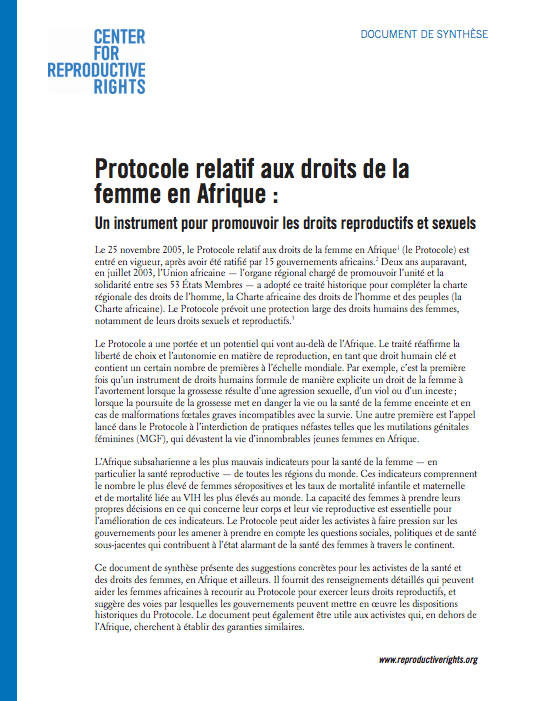Kenyan High Court: Education Sector Fails to Protect Students from Sexual Abuse
(PRESS RELEASE) The Teachers Service Commission (TSC)—the main teachers union in Kenya tasked with recruiting and employing teachers, and determining disciplinary actions—failed to protect students from sexual assault, according to a recent High Court of Kenya decision.
In February 2012, a petition was filed by Chigiti &, Chigiti Advocates on behalf of two female students, known as W.J. and L.N., at Jamhuri Primary School who were sexually abused by their teacher. The petition argued that W.J. and L.N.’s rights to health and education were violated and their abuse was not appropriately handled by school officials—who dismissed the teacher more than 4 months after L.N.’s guardian filed two official complaints on their behalf.
The High Court of Kenya, in a decision dated May 19, 2015, ordered the government to provide financial reparations for the girls and the TSC to update its guidelines to better handle sexual assault allegations. The Center for Reproductive Rights filed an amicus brief in the case, focusing on the consequences sexual violence in schools has on girls and the importance of immediate access to reproductive health services for survivors of sexual assault.
Said Evelyne Opondo, regional director for Africa at the Center for Reproductive Rights:
“Sexual abusers belong behind bars, not in our schools.
“W.J. and L.N. suffered unconscionable abuse and violations of their human rights, all while the Teachers Service Commission stood idly by—refusing to protect their rights, dignity, health, and education.
“The government must now work quickly to provide immediate reparations to these two girls and ensure the Teachers Service Commission implements strong policies that justly remove abusers from the school system.”
In July 2010, Astarikoh Henry Amkoah joined Jamhuri Primary School as a new deputy teacher—transferring from another school after facing allegations of sexual assault. Later in the month, he invited two female students from the Jamhuri School, W.J. and L.N., to his house, where he ordered the girls to mop his house and prepare him lunch. During the visit, Mr. Amkoah raped L.N. and later attempted to rape W.J.
L.N.’s aunt reported the girls’ sexual assault to the District Education Officer in August 2010 and Mr. Amkoah was charged with defilement, however his case was later dismissed. Both girls suffered physical and emotional trauma from the assaults, and L.N. dropped out of school soon after the official complaint was filed.
On February 29, 2012, the law firm Chigiti &, Chigiti Advocates filed a petition on behalf of W.J. and L.N. against Mr. Amkoah, Jamhuri School, TSC and the Attorney General for violating their rights to education, health and to be free from inhuman and degrading treatment—asking for formal acknowledgement from the government and TSC that they failed to protect students from sexual abuse.
In the decision, the judge found Mr. Amkoah guilty of sexual assault and agrees that the TSC and government officials inadequately handled the case of the two students and ordered them to provide financial reparation. The judge stated “…it’s important to send the message that any teacher who violates his duty as a teacher, who abuses the trust of parents who leave their vulnerable children in his charge, and who turns, like a wolf, against them, will be held civilly liable.”
The judge also noted “With respect to the State through the TSC, it must up its game with respect to protection of minors. It cannot shuffle pedophiles from one school to another, and finally, content itself with dismissals.”
The Center for Reproductive Rights filed an amicus brief supporting the case of W.J. and L.N. on March 22, 2012, noting that the TSC circular—employee guidelines—addresses concerns related to the sexual assault of students and the disciplinary actions that should be taken in these cases, but fails to provide sexual assault survivors with psychological or essential health care.
Sexual abuse in school setting is common in Kenya. A 2009 Kenyatta University study of more than 1,200 girls in 70 schools across 10 Kenyan districts found that when girls were impregnated by teachers, 45 percent of teachers suffered minor consequences, typically either a demotion or a transfer to another school, an estimated 30 percent of teachers faced no consequences while 25 percent of teachers were fired. On the other hand, 76 percent of the students impregnated by their teachers dropped out of school and only 1 percent of the girls who dropped out able to rejoin school.
The Center for Reproductive Rights has worked in Africa for more than a decade advancing women and adolescents’ access to reproductive health care through law and policy reform. In 2011, the Center and Federation of Women Lawyers-Kenya (FIDA-Kenya) submitted a report to the United Nations Committee on the Elimination of Discrimination against Women discussing sexual violence in schools that highlights how the failure to address and rectify these violations are a form of violence and denies survivors access to immediate health care and justice. In 2007, the Center and FIDA-Kenya released the report Failure to Deliver: Violations of Women’s Human Rights in Kenyan Health Facilities, documenting how Kenya’s health care sector suffers from systemic and widespread problems that deny women quality reproductive health care and violate their human rights.

